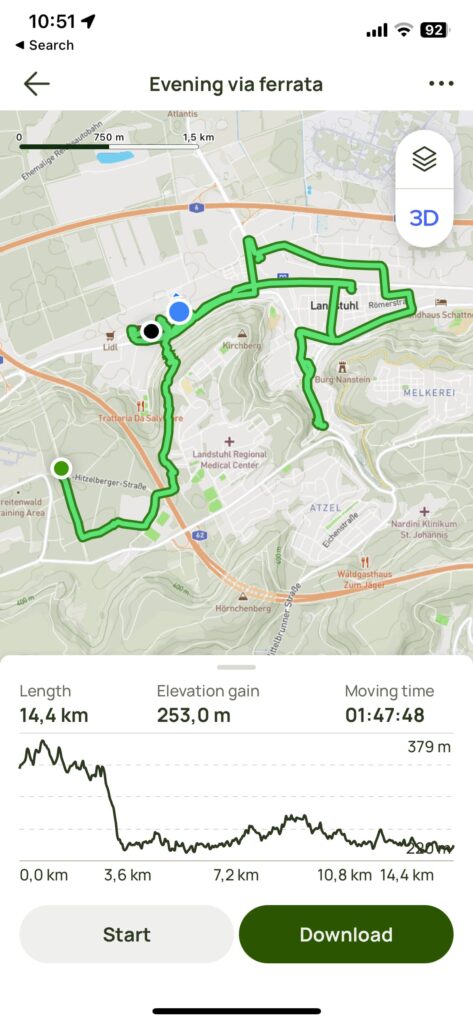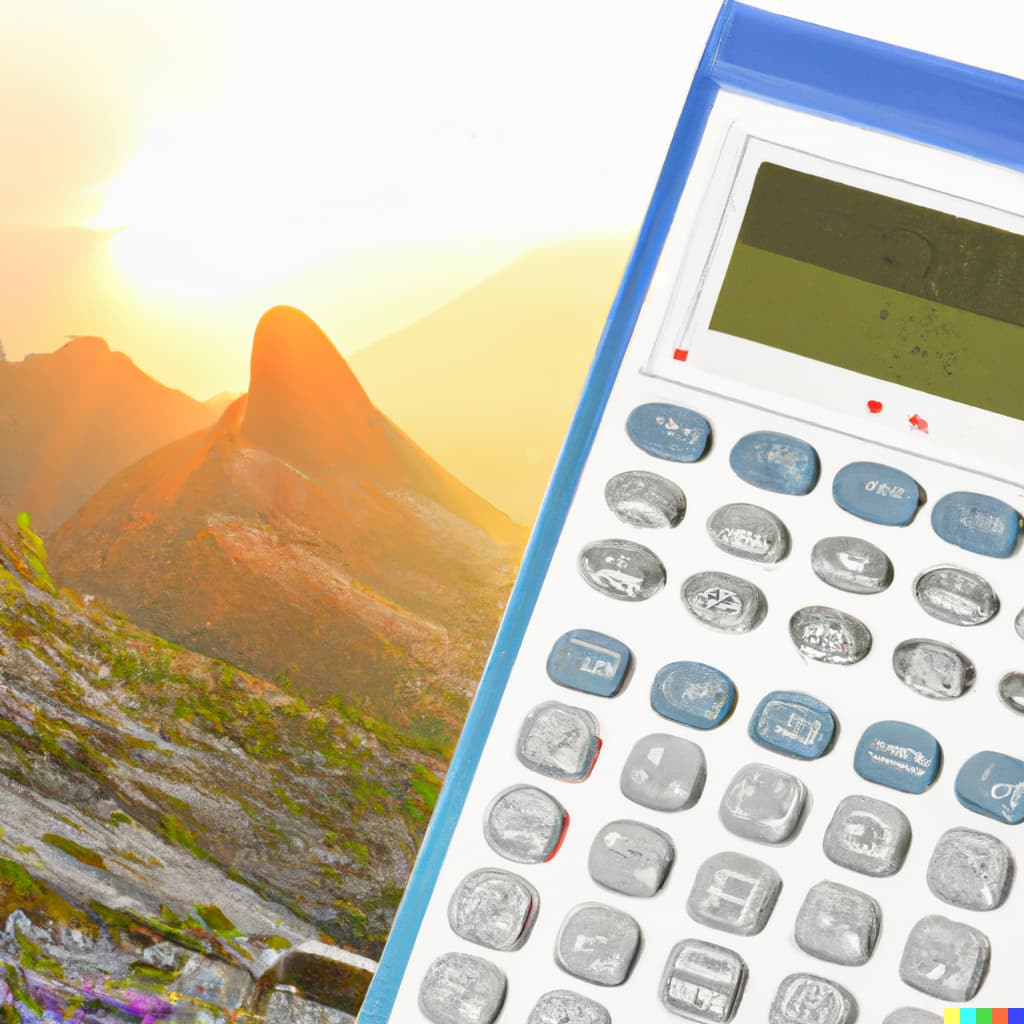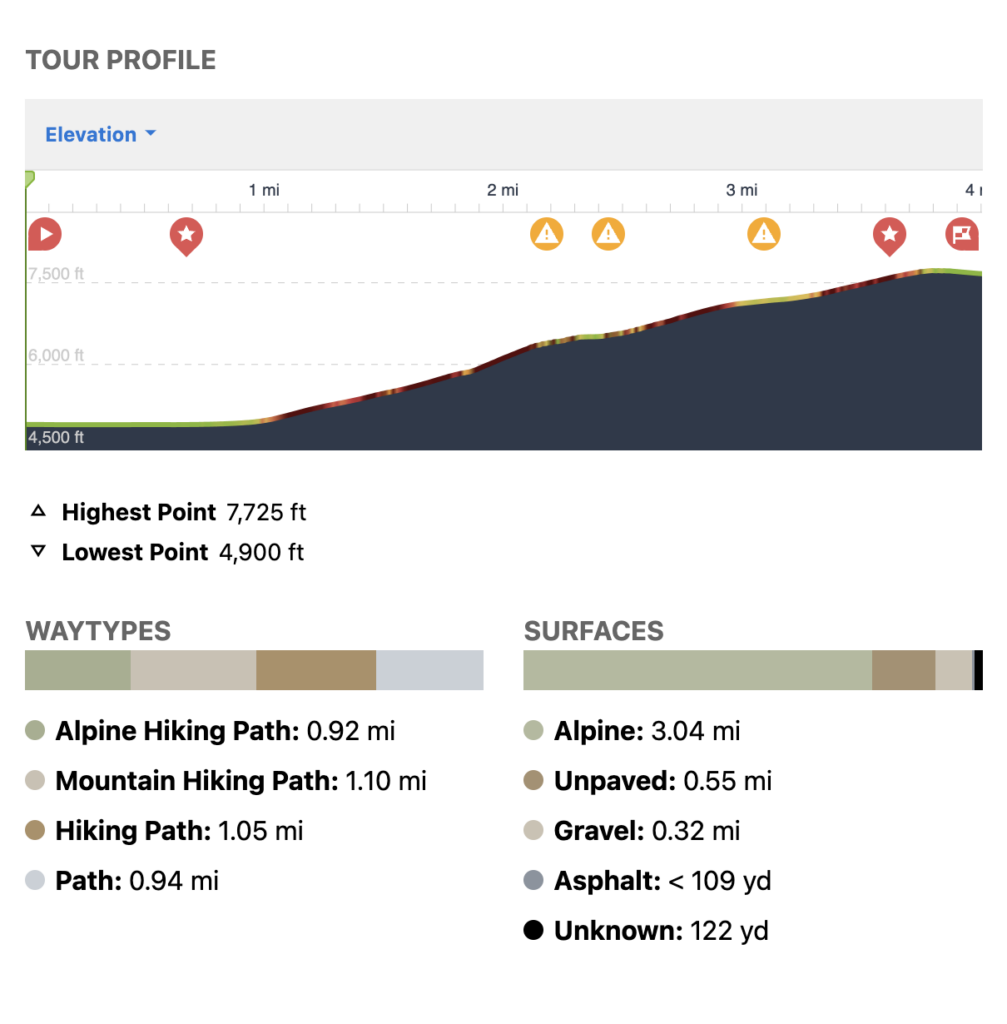Author’s Tl;DR: While a hiking time calculator can be a useful tool for any hiker, but it’s important to use it as a guide and not rely on it completely. Your mileage (or kilometerage) will vary.
What is a Hiking Time Calculator?
Will you get back in time? Use my custom built calculator to estimate your time. Read until the end to learn about some useful rules of thumb when planning your next hike.
I’m constantly getting stuck out after dark because I can’t help myself. If you’re like me, think about taking a hiking headlamp just in case!
Hiking Time Calculator (Built by a Hiker)
Let’s Get Planning Your Next Hiking Adventure.
As a physical therapist with 15 years of experience, I know that hiking is a great way to stay active and improve your overall health. However, it can be difficult to estimate how long a hike will take, especially if you’re not familiar with the trail (or maybe take a lot of photo breaks 📸 🌸).
That’s where a hiking time calculator comes in.
To use this calculator, fill in each field and your hiking time estimate will be calculated in minutes based upon your specific variables.
Hiking Time Calculator Built by a Physical Therapist
Choose Your Speed
- Beginner Hiker: typically walks 3.2 kilometers per hour or a pace of 18.75 minutes per kilometer.
- Average Hiker: typically walks 4.8 kilometers per hour or a pace of 12.5 minutes per kilometer.
- Advanced Hiker: typically walks 6.4 kilometers per hour or a pace of 9.37 minutes per kilometer.
How to Calculate Hiking Time

Here are the three factors you need to consider when using my hiking time calculator:
Choose Your Average Hiking Time Speed
The first thing you need to do when calculating hiking time is to choose your speed. The speed at which you hike will depend on your fitness level, the terrain, and the weather conditions.
If you are hiking on a flat trail, you may be able to hike at a faster pace than if you are hiking up a steep mountain.
As a general rule of thumb, you can use the following speeds:
Quick Table of Average Hiking Times
| Hiking Speed | Flat Terrain | Up Hill | Down Hill |
| Beginner | 2 miles per hour | 1 mile per hour | 2.5 miles per hour |
| Average | 3 miles per hour | 1.5 miles per hour | 3.5 miles per hour |
| Advanced | 4 miles per hour | 2 miles per hour | 4.5 miles per hour |
Distance
The second factor you need to consider is the distance of the hike. The longer the hike, the longer it will take you to complete it (duh).
You can use a hiking time calculator to estimate how long it will take you to hike a certain distance. For example, to hike 15 miles it will take a beginner 7.5 hours, whereas to hike 3 miles it takes 1.5 hours.
Elevation Gain (How much uphill or steepness)

The third factor you need to consider is the elevation gain. The more elevation gain a hike has, the longer it will take you to complete it. Even walking downhill takes longer than walking the flats. Of course uphill is usually the slowest going.
You can use a hiking time calculator to estimate how long it will take you to hike a certain elevation gain.
Even easier is to simply use a hiking app like AllTrails. It will help you plan and record your hike so you don’t get lost and the graphs make it easy to see the elevation gain.
Tips for Using My Hiking Time Calculator

Inputting Accurate Data
It’s important to input accurate data into the calculator to get the most reliable results for average hiking speed. Make sure to double-check the length of the trail and the elevation gain before inputting the data.
If you’re not sure about the elevation gain, use a topographic map or consult a reliable hiking guidebook. Apps like Komoot and AllTrails include elevation gain for each hike.
Want to learn exactly how to use Komoot? Here’s my guide to this great hiking app written for non-techy people.
Interpreting Results
Once you’ve inputted the data, the hiking time calculator will give you a rough estimate of how long your hike will take. However, it’s important to remember that this is just an estimate.
Factors such as weather conditions, trail conditions, and your own fitness level can all affect how long the hike will actually take. Use the estimate as a starting point, but be prepared to adjust your plans as needed.
Other Tips
Here are a few other tips for using a hiking time calculator:
- Make sure to choose the correct units (imperial or metric) when inputting data.
- If you’re planning a hike that involves multiple trails or loops, make sure to input each section separately into the calculator. Use guides to estimate.
- Remember that hiking downhill can take less time than hiking uphill, so take this into account when interpreting the results.
By following these tips, you can use a hiking time calculator to plan your hiking trip more effectively.
Remember to always prioritize safety and be prepared for unexpected changes in the trail conditions.
Factors Affecting Hiking Time
When planning a hike, it is important to consider several factors that can affect the time it takes to complete the trail. I’m relying on Naismith’s rule to help plan your hike.
These factors include terrain, fitness level, weather conditions, and group size.
Terrain

The terrain of a trail can greatly affect hiking total time.
Steep inclines or declines like at the Kleinwalsertal in Austria, rocky paths, or uneven terrain can slow down hikers, while flat, smooth paths can speed up the hike.
Technicality of the terrain is also an important factor to consider. Climbing or scrambling will take longer than simple walking.
When planning a hike, it is important to research the trail and terrain to get an idea of what to expect and keep in mind safety tips for hiking.
Fitness Level
Personal fitness level is another important factor that affects hiking time. Someone who is physically fit and used to hiking will be able to complete a trail faster than someone who is not used to physical activity.
It is important to be honest about personal fitness level when planning a hike and to choose a trail that is appropriate for the level of fitness.
Pack weight can also affect your hiking time, so carefully consider what you bring.
I’ve been out on the trails in the Dolomites with friends who weren’t quite up for it. It was a drag to watch my buddy vomit from the hike on day 1 of a 5 day hike.
Weather Conditions
Weather conditions can also greatly affect hiking time. Rain, snow, mud, ice, wind, and lightning are all factors that can slow down hikers.
It is important to check the weather forecast before heading out on a hike and to be prepared for any conditions that may arise.
Windy and Bergfex are great apps for the mountains of Europe.
Group Size
The size of the hiking group can also affect hiking time. A larger group may need to take more breaks or move at a slower pace, while a smaller group may be able to move more quickly.
It is important to consider the size and abilities of the group when planning a hike.
When I lead group hikes in the Dolomites, we tend to break up into 2 smaller groups. The “turtle” group and the “hare” group. It makes it so much better for everyone involved.
Hiking Time Estimates
It’s important to remember that a hiking time calculator is just an estimate, and there are many factors that can affect your hiking time, including your fitness level, the terrain, and the weather.
It’s always a good idea to give yourself some extra time when planning your hike, especially if you are hiking in an unfamiliar area.
Why Use a Hiking Time Calculator?
One of the most important factors to consider when planning a hike is how long it will take you to complete the trail.
Benefits of Knowing Your Hiking Speed and Time
There are several benefits to using a hiking time calculator to estimate how long your hike will take:
- Stay Safe: Knowing how long your hike will take can help you plan your trip and ensure that you have enough time to complete the trail before it gets dark or the weather changes.
- Stay Hydrated and Fueled: If you know how long your hike will take, you can plan ahead and bring enough water and snacks to keep you hydrated and fueled throughout the trip.
- Set Realistic Goals: Estimating your hiking time can help you set realistic goals and choose trails that match your fitness level and experience.
- Enjoy the Scenery: When you know how long your hike will take, you can relax and enjoy the scenery without worrying about how much time you have left.
More helpful resources for pro and aspiring hikers
Immerse into your senses with:
📚 Top hiking books & movies
🎧 Inspiring hiking podcasts
Video ➡️ Best waterfalls in Europe
and the best Nature quotes, Mountain Quotes & Dolomites Quotes to inspire wonder.
Related Reading:
Read my 10 Hiking Rules for Safety.
I hope you are able to use my simple hiking time calculator to plan your next adventure.

Author profile: Morgan Fielder is a Doctor of Physical Therapy and passionate hiker who believes in exploring the world on foot with good food. Follow her journey as she shares science-based hiking tips and advocates for sustainable tourism.
